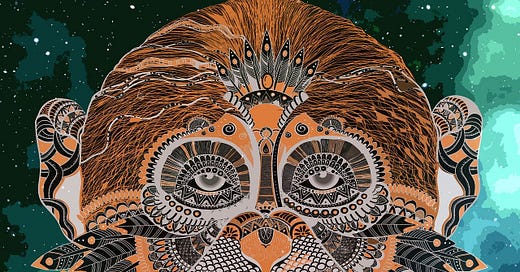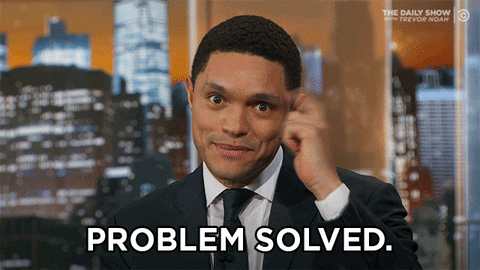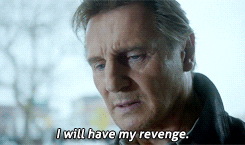It’s time to pay royalty
In today’s edition, NFT creators hunt for royalties, and the search for Do Kwon.
Good morning! Welcome to The Daily Moon. It’s a brand new week. Metaverse casino Slotie has decided to put its cards away. Several state regulators in the US pulled the plug on Slotie. Apparently, the casino sold entry tokens as NFTs. What are the odds of that?
Moving on, today we talk about the artists-marketplace tussle over NFT royalty payments, and thousands are looking for Do Kwon.
The markets recovered. Bitcoin was at ~$19,300 while Ethereum moved to $1,340. Nasdaq gained on the back of strong corporate earnings. Back home, Sensex and Nifty rose due to buying in banking stocks.
Photo by Chetraruc from Pixabay
Whose Royalty Is It?
Taylor Swift was only 15 when she signed a six-album deal with Big Machine Records in 2005. The music company made millions as owners of her titles. With time, Big Machine changed hands and Swift lost all rights to her music. Things got so bad, she couldn’t even perform her own songs at events. Swift managed to ‘shake it off’ and began re-recording all the songs in 2019. By the end of 2021, she had reclaimed two of her albums through their remastered versions. She will soon take back the rest.
Why are we discussing the global pop icon now? It’s relevant. Creator ownership and royalties have been a matter of debate for decades. A similar conflict is bubbling up in the world of NFTs. Creators and artists want royalties but marketplaces are acting stingy.
There are three main stakeholders in NFTs. Creators, marketplaces, and traders. NFTs exist because artists create them. And these artists want royalty payments from resellers. But marketplaces and traders don’t want to pay. This is the ongoing disagreement between NFT creators and marketplaces.
What’s the royalty share?
What often happened was that artists showcased their work on platforms that eventually took ownership of the creation. That’s a problem blockchain was going to solve.
Every transaction was recorded on the blockchain, so it was easier to keep track. Artists got an alert whenever their creation was resold, and received between 5% and 10% of the sale price as royalty.
But sellers were unhappy. Artists took a piece of their profit share so NFT trades were not as lucrative. Plus, there was the marketplace fee for all traders. So traders complained to the marketplaces and asked for royalties to be made optional.
Ok, go on
Marketplaces succumbed to pressure. NFT platform X2Y2 announced in August that buyers can decide the quantum of royalty payments. This meant that creators wouldn’t be guaranteed royalties for resale.
Magic Eden went next. Calling it a “difficult decision”, the NFT marketplace switched to optional royalties. Artists are unhappy because NFT creation won’t be as sustainable as before.


Why did platforms do this?
NFT sales have plunged. Marketplaces had $3.4 billion in NFT sales in Q3, down from $8.4 billion the previous quarter. It’s nowhere close to the $12.5 billion peak sales in Q1.
Marketplaces such as Solana-based Magic Eden had no other option but to drop royalties. Sales fell 60% between July and September. Base prices of NFTs crashed. Royalties eat into whatever little earnings resellers make.
But if it’s made optional, nobody pays. For instance, when X2Y2 changed its royalty policy, only two out of 14 Bored Ape NFT buyers chose to pay royalties to Yuga Labs.
Any alternatives for creators?
Think about it. If artists stop creating NFTs, what will marketplaces sell? NFT-art marketplace Exchange Art claimed that Magic Eden “broke” its promise to stay creator-centric. Many artists have proposed a system where each NFT has guaranteed royalties embedded into the token.
Michael Joseph Winkelmann, aka Beeple, has a solution. The NFT artists said that platforms should switch to a buyer’s premium where whoever buys the NFT pays royalties. He’s proposed a “disable” mechanism to change the NFT to a blank image if the royalties are not paid.
So, what’s next?
Solana platforms have made rapid switches to optional royalty. Ethereum and Cardano are the other alternatives. Cardano, in particular, has said that they will continue to support royalty payments.
Ethereum is the most popular NFT blockchain. So even if ETH developers decide to drop royalties, creators won’t let go without a fight. But the fear of being shunned is more pronounced than earlier. When everyone’s trying to make money via NFTs, there’s no reason why its creators shouldn’t.
Finding Do Kwon
How many disgruntled crypto investors does it take to track down a crypto fugitive? Maybe 4,400. Or more. That’s what the UST Restitution Group is trying to do. It’s a group of investors who lost huge amounts of money in the Terra crash and now want to bring Terraform Labs founder Do Kwon to justice. As movie plot-like as it sounds, we promise you, it’s a true story.
On the hunt
Well, it turns out that these 4,400 people are coordinating efforts to trace Do Kwon over Discord. They’re following every little clue, every little breadcrumb to figure out where he is. The police in South Korea are on the trail too, and Interpol also issued a Red Notice last month. This essentially is a request to law enforcement agencies globally to find and arrest the crypto founder.
Do Kwon however, has maintained that he is not hiding. The URG clearly disagrees. The manhunt has so far zeroed in on Dubai, Russia, Azerbaijan, Seychelles and Mauritius as some of the locations where they say Do Kwon might be taking cover.
Justified anger?
There have been concerns about the criminalisation of crypto setting a dangerous precedent. But people who lost real money won’t care about precedents at this point. A Taiwanese man who lost $60 million in the Terra crash reportedly died by suicide after losing his life savings. The URG seems to be an attempt to fix accountability for these losses.
And that’s it for today. If this email was forwarded to you, please consider subscribing. It’s free. We’ll never show you an ad or charge you for this. We swear.
Who are we? This newsletter’s ambition is to educate (and to entertain). The world of money is changing everyday and we want to help you decode what’s happening in the world of crypto, public markets in the US and India.






